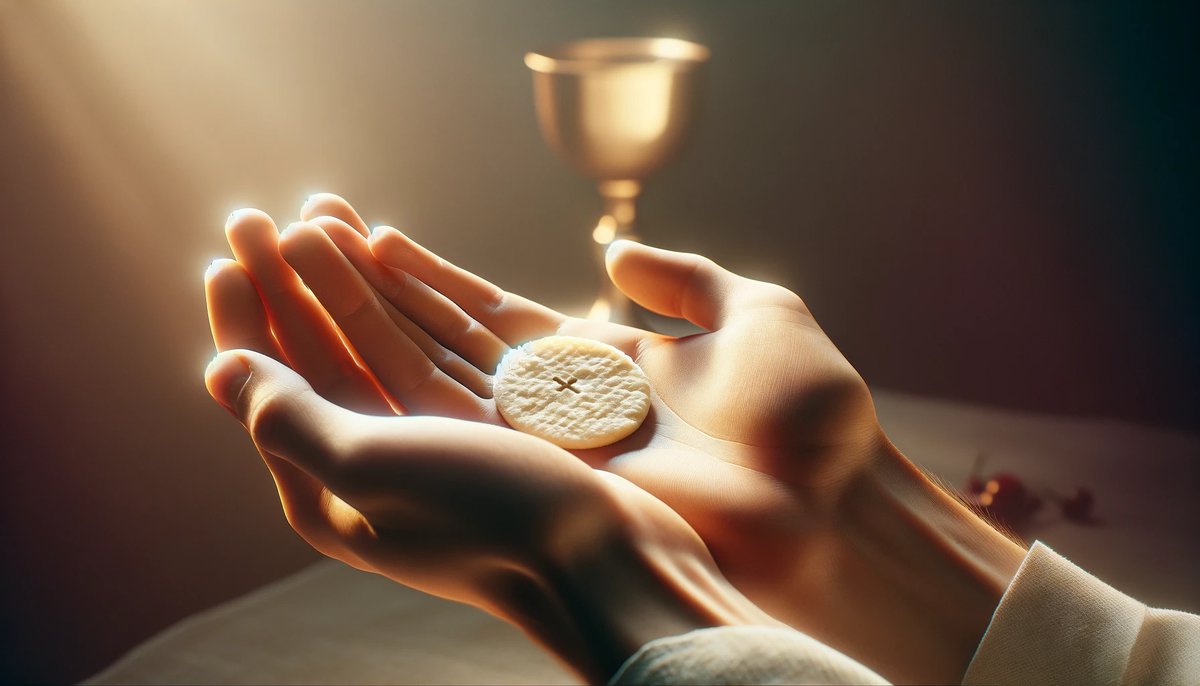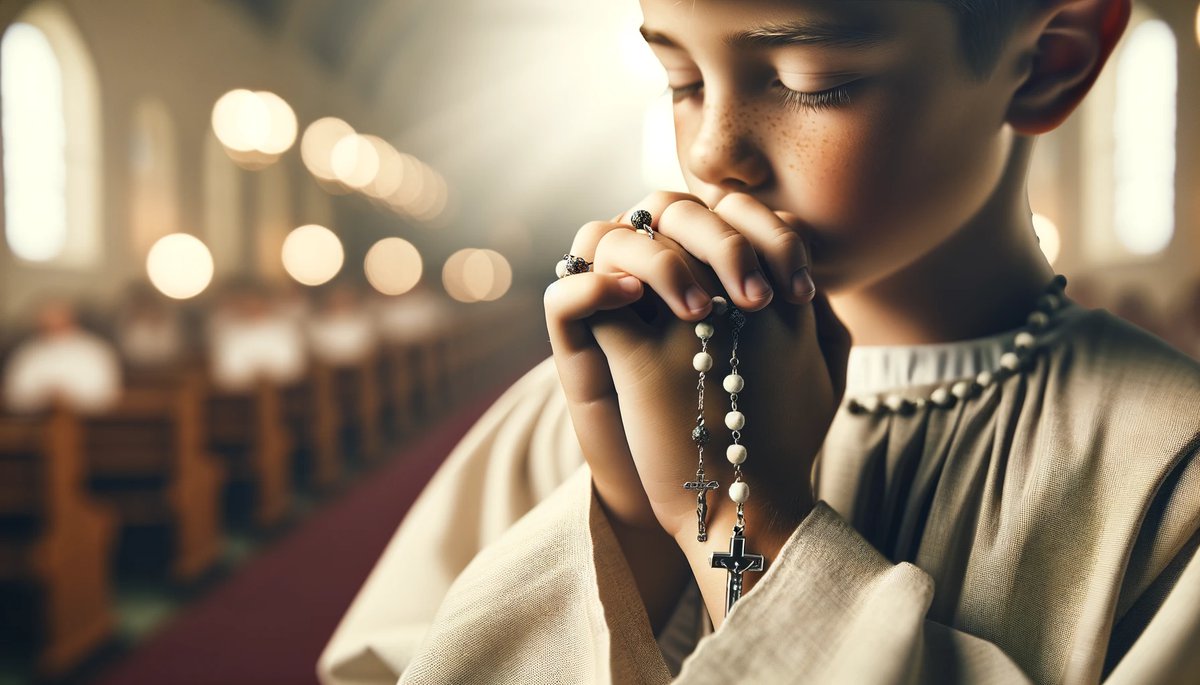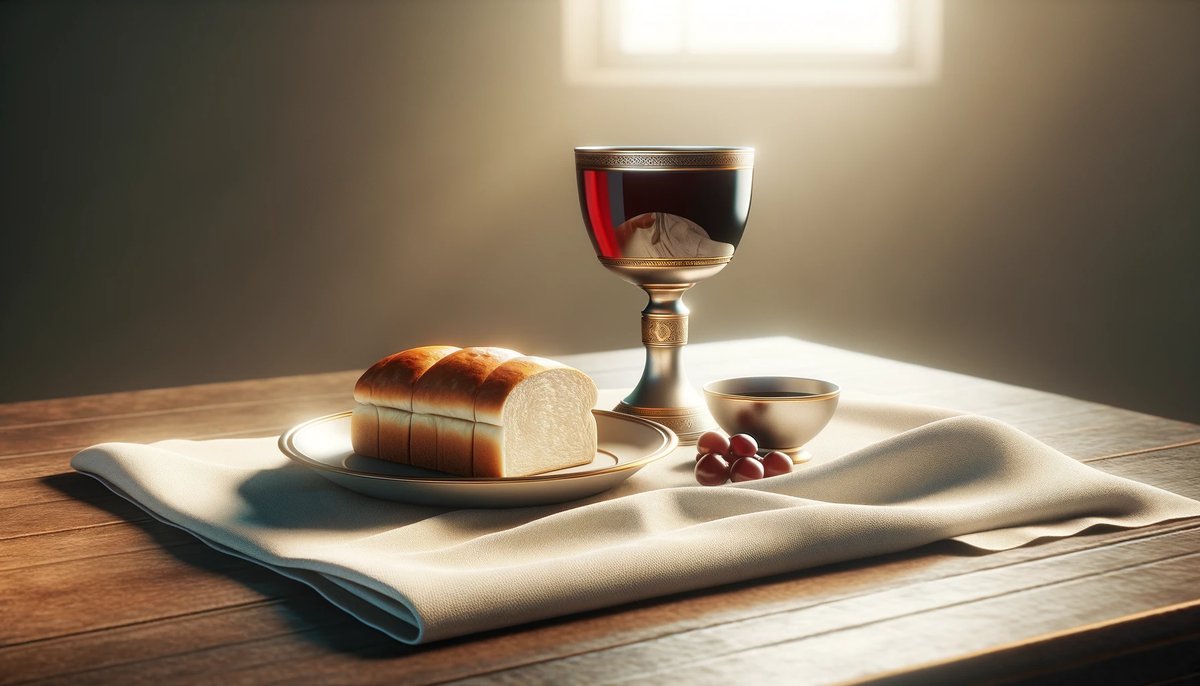Home>Theology and Spirituality>When Do You Do Communion At A Wedding


Theology and Spirituality
When Do You Do Communion At A Wedding
Published: February 25, 2024
Peter Smith, Editorial Director at Christian.net, combines deep insights into faith, politics, and culture to lead content creation that resonates widely. Awarded for his contributions to religious discourse, he previously headed a major organization for religious communicators, enhancing dialogue on faith's societal impacts.
Learn about the significance of communion at weddings and when it is typically performed. Explore the theological and spiritual aspects of this sacred tradition.
(Many of the links in this article redirect to a specific reviewed product. Your purchase of these products through affiliate links helps to generate commission for Christian.net, at no extra cost. Learn more)
Table of Contents
Introduction
When it comes to wedding ceremonies, there are numerous traditions and rituals that hold deep symbolic significance. One such tradition is the act of communion, which carries profound spiritual meaning for many couples. Communion, also known as the Eucharist, is a sacred ritual in Christianity that commemorates the Last Supper of Jesus Christ with his disciples. It involves the consumption of bread and wine, symbolizing the body and blood of Christ, and is a deeply meaningful sacrament for believers.
In the context of a wedding, the inclusion of communion can add a layer of spiritual depth and significance to the ceremony. It serves as a powerful symbol of unity, not only between the couple getting married but also with their faith and community. The act of partaking in communion together can be a poignant expression of the couple's commitment to their shared spiritual journey and the presence of a higher power in their union.
As couples plan their wedding ceremonies, the timing of communion becomes a significant consideration. The decision of when to incorporate communion into the proceedings can impact the overall flow and atmosphere of the event. It is essential to carefully deliberate on the timing to ensure that the inclusion of communion aligns harmoniously with the couple's beliefs and the overarching theme of the ceremony.
In the following sections, we will delve into the significance of communion in a wedding, explore the traditional and alternative timings for incorporating communion, and discuss the factors that couples should consider when making this decision. By examining these aspects, couples can gain a deeper understanding of how communion can be seamlessly integrated into their wedding ceremony, creating a meaningful and memorable experience for all in attendance.
Read more: When Do You Do Holy Communion
The Significance of Communion in a Wedding
The inclusion of communion in a wedding ceremony holds profound significance, deeply rooted in spiritual and symbolic meaning. Communion, derived from the Last Supper of Jesus Christ with his disciples, is a sacred sacrament in Christianity. It symbolizes the unity of believers with Christ and with one another, embodying the spiritual nourishment and sustenance derived from the divine.
In the context of a wedding, communion serves as a powerful symbol of unity and spiritual connection. As the couple partakes in the bread and wine, they are not only commemorating the sacrificial love of Christ but also affirming their commitment to each other in the presence of their faith community. The act of sharing in communion signifies the couple's desire to intertwine their spiritual journey with their marital union, acknowledging the divine presence in their relationship.
Furthermore, communion in a wedding ceremony reflects the couple's shared values and beliefs. It signifies their intention to build their marriage on a foundation of faith and spiritual devotion. By incorporating communion, the couple invites their loved ones to witness and partake in this sacred expression of their commitment, fostering a sense of collective participation and support.
Moreover, communion embodies the concept of nourishment and sustenance, both spiritually and emotionally. As the couple partakes in the elements, they are reminded of the sustenance derived from their faith and the nourishment it provides for their relationship. It serves as a poignant reminder of the spiritual sustenance that will guide and strengthen them as they embark on their journey together as a married couple.
In essence, the significance of communion in a wedding lies in its ability to encapsulate the spiritual, emotional, and communal dimensions of the marital union. It serves as a tangible expression of the couple's shared faith, their commitment to each other, and their desire to seek spiritual nourishment as they navigate the path of marriage. By incorporating communion into their wedding ceremony, couples can infuse their special day with profound symbolism and spiritual depth, creating a truly memorable and meaningful experience for themselves and their guests.
Traditional Timing for Communion at a Wedding
In the traditional context of a wedding ceremony, communion is typically incorporated following the exchange of vows and rings, often before the pronouncement of the couple as married. This timing aligns with the symbolic progression of the ceremony, where the exchange of vows signifies the couple's commitment to each other, and the act of communion further reinforces this commitment within a spiritual framework.
By placing communion after the exchange of vows, the couple symbolically solidifies their union before partaking in the sacred ritual. This sequence allows for a seamless transition from the spoken vows, which express the couple's promises to each other, to the act of communion, which symbolizes their spiritual bond and shared journey. The timing also allows the couple to approach the communion table together, emphasizing their unity and mutual participation in the sacrament.
Furthermore, incorporating communion at this juncture in the ceremony creates a poignant moment of reflection and spiritual connection for the couple and their guests. Following the exchange of vows, the atmosphere is imbued with a sense of profound commitment and love, setting the stage for the deeply symbolic act of communion. As the couple partakes in the elements, they do so in the presence of their loved ones, inviting them to witness and share in this sacred expression of unity and faith.
From a logistical standpoint, placing communion after the exchange of vows allows for a natural flow in the ceremony. It serves as a transitional element that bridges the spoken declarations of love and commitment with the spiritual communion shared by the couple and their community. This timing also sets the stage for the pronouncement of the couple as married, creating a seamless progression from the spiritual to the practical aspects of the ceremony.
In summary, the traditional timing for communion at a wedding, following the exchange of vows and rings, holds deep symbolic significance and serves to further solidify the couple's commitment within a spiritual context. This timing allows for a seamless transition from the spoken promises to the act of communion, creating a moment of profound unity and reflection for the couple and their guests.
Alternative Timing for Communion at a Wedding
While the traditional timing for communion at a wedding holds deep symbolic significance, couples have the flexibility to explore alternative timings that align with their unique vision for the ceremony. One alternative approach is to incorporate communion at the beginning of the wedding ceremony, before the exchange of vows and rings. This alternative timing can infuse the entire event with a profound sense of spiritual unity and set the tone for the commitment that will be expressed through the vows.
By initiating the ceremony with communion, the couple establishes a powerful spiritual foundation for the proceedings. As the guests gather and the ceremony commences, the act of communion at the outset creates a sacred and contemplative atmosphere. It allows everyone present to partake in a shared moment of spiritual reflection and unity, setting the stage for the vows and the subsequent celebration of the couple's union.
Another alternative timing for communion is to place it immediately following the pronouncement of the couple as married. This timing allows the act of communion to serve as a symbolic first step in the couple's journey together as a married unit. By partaking in communion as newlyweds, the couple reaffirms their commitment to each other within the context of their shared faith, marking the beginning of their married life with a deeply spiritual and communal expression.
Additionally, some couples may choose to incorporate communion at a specific moment within the ceremony that holds personal significance to them. This could be tied to a meaningful reading, a musical interlude, or a symbolic ritual that precedes or follows the exchange of vows. By integrating communion at a personalized juncture in the ceremony, the couple can infuse the ritual with their unique spiritual narrative, creating a deeply personal and meaningful experience for themselves and their guests.
Furthermore, for couples from diverse cultural or religious backgrounds, integrating elements of their respective traditions into the timing of communion can be a beautiful way to honor their heritage and celebrate their union. This may involve blending different ceremonial practices or adjusting the timing of communion to harmonize with the customs and beliefs that hold significance for both partners.
In essence, exploring alternative timings for communion at a wedding allows couples to infuse their ceremony with a deeply personalized and spiritually resonant experience. By considering the various moments within the proceedings where communion can be integrated, couples can create a wedding ceremony that authentically reflects their shared values, beliefs, and the profound significance of their union.
Factors to Consider When Deciding on the Timing of Communion
When determining the timing of communion within a wedding ceremony, several factors come into play, each contributing to the overall significance and seamless integration of this sacred ritual. Understanding these factors can guide couples in making an informed decision that aligns with their beliefs, values, and the overarching theme of their wedding ceremony.
-
Spiritual Significance: Couples should reflect on the spiritual significance of communion within their faith tradition. Consider how the timing of communion can best amplify the spiritual symbolism and unity it represents. Whether it serves as a culmination of the vows or as a foundational element at the beginning of the ceremony, the timing should resonate with the couple's spiritual journey and beliefs.
-
Ceremonial Flow: The timing of communion should complement the overall flow of the wedding ceremony. It should seamlessly integrate with the progression of events, creating a natural transition that enhances the emotional and spiritual resonance of the proceedings. Whether placed before or after specific ceremonial elements, such as readings or musical interludes, the timing should contribute to the cohesive narrative of the ceremony.
-
Guest Experience: Couples may consider the impact of communion timing on their guests' experience. Placing communion at a moment that allows for collective participation and reflection can create a meaningful and inclusive atmosphere. Additionally, couples may contemplate how the timing of communion contributes to the overall engagement and emotional connection of their guests with the ceremony.
-
Personal Narrative: Reflecting on their unique journey as a couple, individuals may find significance in integrating communion at a specific moment that holds personal meaning. This could be tied to a shared milestone, a significant memory, or a symbolic gesture that enriches the narrative of their union. The timing of communion can thus become a poignant reflection of the couple's personal story.
-
Logistical Considerations: Practical aspects, such as the venue layout and the flow of movements within the ceremony space, should be taken into account. Couples may assess how the timing of communion aligns with the physical logistics of the ceremony, ensuring a smooth and harmonious transition for the couple, officiant, and guests.
-
Cultural and Religious Context: For couples from diverse cultural or religious backgrounds, the timing of communion may be influenced by the blending of traditions. It is essential to consider how the timing respects and honors the cultural and religious significance of the ritual for both partners, fostering a harmonious integration of diverse ceremonial practices.
By carefully considering these factors, couples can thoughtfully determine the timing of communion within their wedding ceremony, ensuring that this sacred ritual harmonizes with their spiritual journey, the ceremonial flow, and the collective experience of their guests. Ultimately, the chosen timing should encapsulate the depth of the couple's commitment and the spiritual significance of their union, creating a profoundly meaningful and cohesive wedding ceremony.
Read more: When Do Baptists Take Communion
Conclusion
In conclusion, the inclusion of communion in a wedding ceremony holds profound significance, serving as a powerful symbol of unity, spiritual connection, and shared faith. Whether placed traditionally after the exchange of vows or explored through alternative timings, communion enriches the ceremony with deep spiritual resonance and communal participation.
The traditional timing of communion following the exchange of vows and rings symbolically solidifies the couple's commitment within a spiritual context. It creates a seamless transition from spoken promises to the act of communion, fostering a moment of profound unity and reflection for the couple and their guests. This timing aligns with the symbolic progression of the ceremony, emphasizing the spiritual bond and shared journey of the couple.
Exploring alternative timings for communion offers couples the flexibility to infuse their ceremony with a deeply personalized and spiritually resonant experience. Whether integrated at the beginning of the ceremony, following the pronouncement of the couple as married, or at a personalized juncture, alternative timings allow couples to authentically reflect their shared values, beliefs, and the profound significance of their union.
When deciding on the timing of communion, couples should consider the spiritual significance, ceremonial flow, guest experience, personal narrative, logistical considerations, and cultural and religious context. By carefully reflecting on these factors, couples can thoughtfully determine the timing of communion within their wedding ceremony, ensuring that this sacred ritual harmonizes with their spiritual journey, the ceremonial flow, and the collective experience of their guests.
Ultimately, the timing of communion within a wedding ceremony should encapsulate the depth of the couple's commitment and the spiritual significance of their union, creating a profoundly meaningful and cohesive wedding ceremony. By embracing the rich symbolism and spiritual nourishment of communion, couples can create a wedding ceremony that resonates with profound unity, spiritual depth, and communal celebration.














